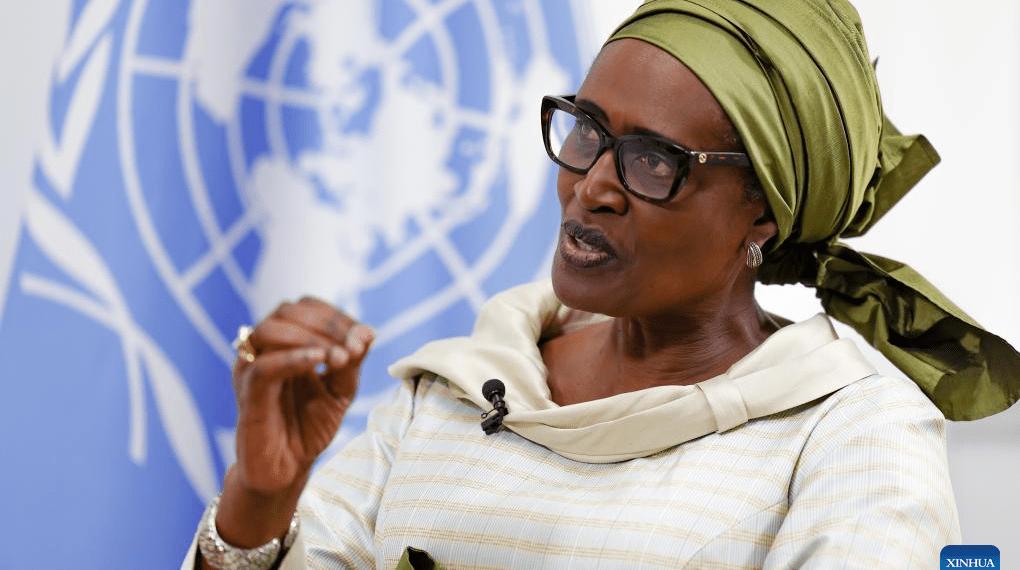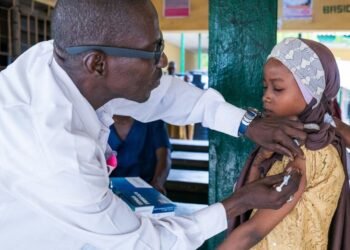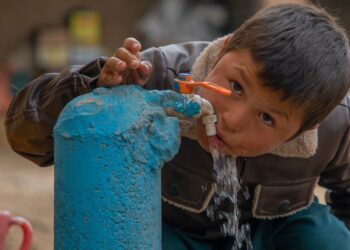UNAIDS Executive Director Winnie Byanyima has warned about the catastrophic consequences of U.S. funding cuts to global HIV programs, predicting a massive surge in infections and deaths unless urgent action is taken.
UNAIDS projects an additional 6.3 million deaths and 8.7 million new infections in the next four years if funding is not restored. “We will see a …real surge in this disease – [we] will see it come back and we see people dying the way we saw them in the 90s and in 2000s,” Byanyima cautioned, emphasizing the severe impact of reduced support.
Byanyima’s remarks come as the White House reviews its decision to freeze humanitarian aid, including funding for critical HIV treatment and prevention programs. The 90-day freeze announced on January 20 will end next month, but no alternative pledges have been made by other governments to bridge the gap.
Already, the effects of the funding cut are being felt worldwide. Drop-in centers that provide life-saving anti-retroviral drugs to HIV patients have shuttered due to uncertainty over U.S. policy changes.
Africa Faces Disproportionate Impact
Sub-Saharan Africa remains the epicenter of the HIV epidemic, carrying 53% of the global burden. Byanyima underscored the dire consequences of closing drop-in centers for young women and girls, who account for over 60% of new infections on the continent.
The Democratic Republic of Congo (DRC) is among the hardest-hit nations. UNAIDS estimates that 520,000 people in the DRC are living with HIV, including 300,000 women and 50,000 children. The epidemic continues to grow, with new infections outpacing AIDS-related deaths.
The U.S. President’s Emergency Plan for AIDS Relief (PEPFAR), launched in 2003, has been a cornerstone of the global HIV response, saving an estimated 26 million lives. In the DRC alone, PEPFAR had pledged $105 million for the 2025 fiscal year to provide treatment for over 209,000 people.
However, the potential withdrawal of PEPFAR funds threatens to disrupt life-saving treatment and prevention programs. Susan Kasedde, head of the UNAIDS office in the DRC, emphasized the interconnected nature of HIV response efforts. “Treatment cannot work without operational capacity, treatment cannot be provided if there is not a proper-functioning supply chain,” she warned.
Global Repercussions of Funding Cuts
The impact of U.S. budget reductions extends beyond UNAIDS. Several other UN agencies, including the UN Refugee Agency (UNHCR) and the International Organization for Migration (IOM), have reported severe disruptions in their operations.
In the war-torn eastern DRC, thousands of displaced people are now without humanitarian aid, while funding shortages have undermined essential services for vulnerable migrant communities. UNICEF has also raised alarms, stating that the liquidity crisis jeopardizes decades of progress in reducing child mortality, which has fallen by 60% since 1990.
“It is reasonable for the United States to want to reduce its funding – over time. But the sudden withdrawal of lifesaving support is having a devastating impact across countries, particularly Africa, but even in Asia and Latin America. We urge for a reconsideration and an urgent restoration of services – of life-saving services.”
UNAIDS Executive Director Winnie Byanyima
Byanyima appealed directly to President Donald Trump, urging his administration to reconsider the cuts and recognize the role the U.S. has historically played in fighting HIV worldwide.

She pointed to PEPFAR’s success as an initiative introduced by former President George W. Bush and suggested that Trump could usher in a new “prevention revolution.”
A potential breakthrough in HIV prevention, she noted, is the development of injectable HIV treatments that require administration only twice a year.
“The deal is that an American company is enabled to produce and to license generics across the regions to produce millions and roll out this injectable to those who really need it.”
UNAIDS Executive Director Winnie Byanyima
UNAIDS estimates that approximately 40 million people globally live with HIV, based on 2023 data. Of that number, 1.3 million people contracted the virus in the past year, and 630,000 died from AIDS-related illnesses. With PEPFAR’s future uncertain, advocates fear these numbers will rise sharply.
Byanyima’s message remains clear: the global fight against HIV is at a crossroads, and urgent action is needed to prevent millions of unnecessary deaths.
READ ALSO: Minority Raises Alarm Over Unlawful Raids on Political Opponents





















